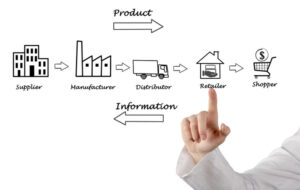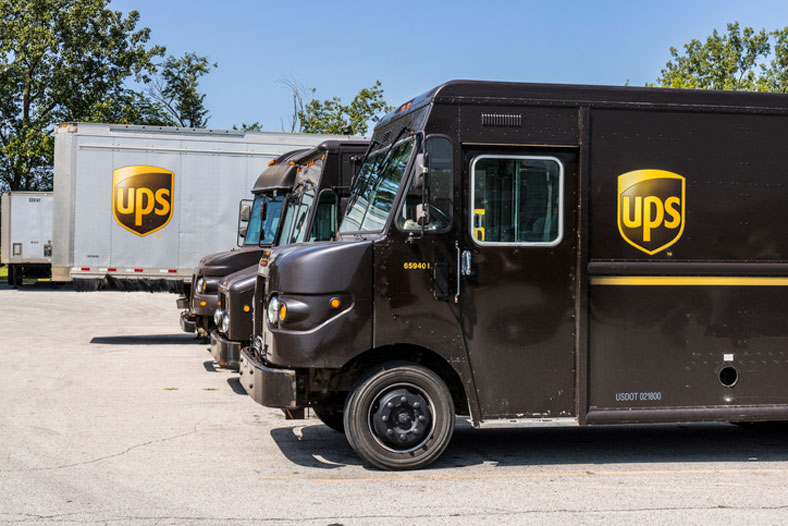Written by Scott Wilson
What is 4PL in supply chain management? 4PL is short-hand for Fourth-Party Logistics providers, also called lead logistics providers (LLP). Companies outsource to 4PL providers for end-to-end logistics services. 4PLs may outsource a certain number of those functions by sub-contracting with other specialized providers. A 4PL effectively assumes high-level logistics management functions for their clients while also handling day-to-day logistics needs.

Fourth-party logistics (4PL) is true one-stop shopping for an organization’s supply chain outsourcing needs.
The concept of Third-Party Logistics (3PL) has to do with outsourcing specific logistics functions to providers who specialize in certain services. But Fourth-Party Logistics (4PL), as the name implies, goes one step further: it also outsources the general, overall management of an organization’s logistics needs.
Also known as lead logistics providers (LLP), a 4PL eliminates the need to have operational-level supply chain management teams within an organization. While companies continue to develop their own products, the day-to-day management of every aspect of the logistics train is taken over by the 4PL company.
A 4PL solution offers companies a single point of contact for their outsourced supply chain management services. While it can deliver incredible convenience, 4PL logistics also comes with big risks that makes finding the right provider incredibly important.
What Characterizes 4PL Logistics Solutions?
 The concept of a 4PL level in logistics outsourcing was developed by Andersen Consulting in 1996, and was actually trademarked for a time. The definition they came up with was “…an integrator that assembles its own resources, capabilities, technology and other service providers to design and manage complex supply chains.”
The concept of a 4PL level in logistics outsourcing was developed by Andersen Consulting in 1996, and was actually trademarked for a time. The definition they came up with was “…an integrator that assembles its own resources, capabilities, technology and other service providers to design and manage complex supply chains.”
4PL logistics is often referred to as an end-to-end solution. That is, a 4PL provider takes on every step of the logistics element of a client’s supply chain process. They act as the overall coordinator that executes supply chain functions, taking ownership of the entire process. They integrate every supply chain function, whether performed internally by the client, by a subcontracted 2PL/3PL provider, or by the 4PL organization itself.
This offers 4PL customers flexibility and advantages that are otherwise tough to put together independently. Bringing a raft of experience and up-to-date knowledge of the supply chain outsourcing world to the table, a 4PL can put together a customized solution—and run it down to the last detail—far more efficiently than most companies can handle internally.
4PL Companies Integrate Deeply into Their Client Organization’s Supply Chain and Technology Operations

Working with a 4PL is a collaborative exercise. They require a level of insight into client operations that allows them to make the right logistics arrangements to align with corporate strategy.
This also means that 4PL services are effectively software services. The technology alignment between clients and 4PL providers has to be intimate and effective. With the level of digital supply chain management that is typical and required in the industry today, all the elements need to click between systems.
Because 4PLs offer such in-depth solutions, that may mean clients effectively plug in to 4PL platforms rather than the reverse. A 4PL might order management software and reporting interfaces for clients to tap into.
What Is a 4PL Used for in Supply Chain Management?
The deep connections that companies develop with 4PL providers is part of what enables their more advanced solution offerings. In fact, it’s a bit like having a plug-and-play supply chain team dropped into the organization.
A 4PL can use their greater insight and familiarity with partner needs and plans to deliver additional services, such as:
- Consulting and advisory roles in SCM strategy
- Project management roles in implementing new services, rolling out new products, or developing new markets
- Reporting and analysis of capacity, utilization trends, and costs
- Market analysis and projections
While many definitions of 4PL state that a true 4PL company doesn’t have any of their own logistics service assets, like warehouses or fleets, that’s not necessarily the case. In fact, many companies function as both third and fourth-party logistics providers.

UPS, for example, has a separate division, Supply Chain Solutions, that expressly offers 4PL services. That’s on top of their menu of services that include traditional 3PL outsourcing like transport and storage. Clients can pick and choose.
Such providers also have the capacity to take on more extensive management; depending on the needs of the customer, they may use their own 3PL services or subcontract to other providers.
On the other hand, as counterintuitive as it sounds, there are many 4PL providers without any particular background or investment in traditional, on-the-ground logistics services. For example, big business consultancies like Deloitte and Accenture offer 4PL services. These exclusively rely on external providers for the nuts-and-bolts work of moving and storing goods.
When to Consider a 4PL Company as a Lead Logistics Provider

Clients of 4PL companies tend to already have some logistics experience. In most cases, they are likely to be organizations that have already put in place an extensive network of outsourced providers. Then as part of streamlining and cost-cutting, they call in the help of a 4PL to consolidate and optimize the supply chain.
Even the most in-depth partnership with a 3PL provider doesn’t reflect the depth of the relationship companies have with 4PL providers.
Some in the industry recognize another level of logistics provisioning, the 5PL, which even takes on strategic and oversight functions for client supply chain services.
On the other hand, in some industries, a 4PL may be the first choice even for startup businesses. In e-commerce, the proliferation of dedicated logistics services and the big technical challenges of ramping up to scale quickly mean that many companies skip the step of dealing with internal or 3PL services and jump right into working with a 4PL.
Why You Might Consider Working for a 4PL Company as a Supply Chain Professional

The expertise and experience needed to make a 4PL the right option for another company’s supply chain needs takes a lot of talent with then the 4PL. 4PL companies themselves are big employers in the supply chain business. Considering the growth of the industry, a supply chain career in 4PL may be one of the safest bets in the field.
In fact, their demands for expertise and training may be even higher than what it is for the average corporation. A supply chain manager working at a 4PL needs the ability to look at logistics problems from many different perspectives. That means wearing several hats:
- Client businesses
- The 4PL provider itself
- Various 3PL/2PL and other subcontractors
And on top of it all, they need a clear-eyed view of the state of affairs in shipping, storage, and even financial markets to assess strategy and goals.
It’s a tough set of qualifications, and the best preparation is often an advanced degree in supply chain management.
Degrees in supply chain management are a good investment even if you’re outsourcing the day-to-day operations, though. Whether it’s working with a 4PL or as an executive making outsourcing decisions, it takes a strong understanding of supply chain principles to make the right call. In a fast-paced industry with fresh demand for managers who can get it right the first time, every time, expertise in logistics has a high value on both sides of the line.







